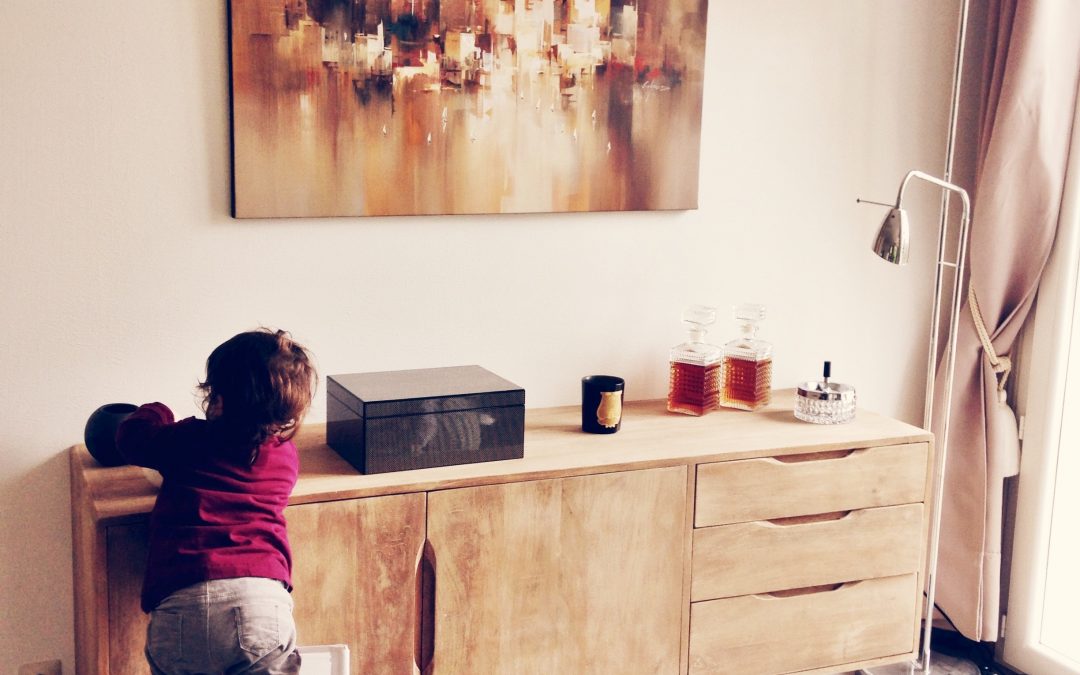During the few minutes long observation, the girl brought her little chair out of her room and showed us how she can climb up and reach anything she wants. The mother first gladly told me how smart her daughter was at finding out the way of its use. However her reactions were not about joy and pride but fear. Every second word of her was “No” or “Don’t”. Well, the risk of accidents is valid, her concerns are understandable…however, her messages will have a negative impact on her daughter, who just wants to prove.
So then, why does she do what she does?
At the age of 2 to 3 children already differentiate themselves from others. They realize that they have power, control over their own body and even some over their environment. First of all, this is already a very exciting discovery that fills them up with self-recognition. On the other hand, through that the world unfolds to them. Their limits extend, they are given opportunities to get to know the world more. Just think about how amazing this could feel. Perhaps, it’s like when we move abroad for the first time. At the beginning we can only accomplish small tasks because of language barriers but later on we become more confident, we can do more and soon we feel: Wow, I’m here in a completely different place, totally alone and still I can stand on my own feet! I can take care of anything, I just feel simply free and independent. Well, kids feel the same. And this motivates them to keep going and improving.
Initially children feel very close to their parents. They want to share all of their discoveries with them. To share their joys and to show them: “Look, what I can do!” At the age of 2 to 3, as they recognise their power, they want to be more independent. They are ready to give more freedom to their “servant” parents. Of course, only if we let them too. For that, we also have to believe that they are capable.
What happens if parents constantly control kids out of fear?
The little girl kept showing her mother and me “look, what I can do!”, “look, what I found out!”… She took her chair (30 cm high) everywhere and stood up on it to reach the window, table, shelf, kitchen counter. Instead of recognition and acknowledgement she got only objections. Confirmation (without the negative intention of the parent) of her being too little to do anything right without her mother. Here came the response of the child. With every move, she said: “but look, I could do it, can’t you see?” The daughter tried to prove with all of her strength to her mother that there are things she can do safely.
Now, you could ask: Should we just let the kid climb up even onto the kitchen counter?
Of course, I don’t think we can let children do whatever. We have to consider, measure things! But if we don’t give them opportunities and space for their competence (new skills) to be recognised and acknowledged, then two things could happen: With a strong personality, conflicts will become regular because they will not give up on their attempts, instead will isolate themselves emotionally from us to protect their true-selves. On the other hand, if they accept our rejections, they will believe that they are less, unworthy. In this case self-doubt will arise which will create hard times at school, at adolescence and at becoming mature adults.
What can we do?
What we can do is reconsider our concerns. When a situation arises we can ask ourselves: Is it really dangerous or just our own fearful thoughts ran too far? Remaining with the previous example, the mother saw it perfectly well that climbing up to the counter would be dangerous for her daughter, therefore a rule must be formulated. However she told the child off even when her daughter was only using the chair to look out of the window. The mother was worried about her girl falling, hitting her head to the edge of the coffee table, which was right behind her, and then that was it… This would be a very extreme scenario but I had to admit there is a slight possibility. So what could we do to prevent that? For example we could push the table away a little and drop some cushions around the kid. We can tell this to the child and also why we do so. She might actually like it and next time will do it for herself. This will prevent getting hurt so badly and still provide space for her to see our trust and faith in learning on her own, even by her own mistakes if she falls. This is how she’ll become talented, smart for life. The point is to somehow meet their inner need for trying, practicing and growing independently.
Later, the little girl was standing on her chair next to the window and was holding her bottle in her hand. When she wanted to get off the chair, called her mom to take the bottle as she didn’t feel safe with it.
If we try to turn down the volume of our fears in our head and be present, we can notice more often that our “terrible two” has more awareness of their own limits than we think.
Do you have similar issues with your kid? Is there a possibility that they are over regulated? Could you give more space to practice with a little change?
If you liked the article, please give us a thumbs up and share it with those who might need it.😉
#parenting #family #childhood #parentslife #mom #tantrum #whattodo #help #advice #coaching #thisislife #positiveparenting #childdevelopment #listen #challenges #fights #biting #fight #conflict #toddlers #earlychildhood #empathy #cooperation #task #solution #tolisten #development #gyerekrehangolva

